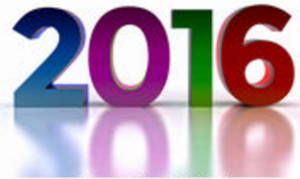 YEAR OF MOBILITY
YEAR OF MOBILITY
- Crafted $720 million Smart Corridor mobility bond package that will decrease congestion on major arteries and increase safety
- Voted on CAMPO to prioritize overpasses on Loop 360 to get additional $204 million from Texas Transportation Commission to add to $46 million passed in mobility bond, which will result in being able to drive the length of Loop 360 from Highway 183 to South MoPac without any stoplights
- Approved Vision Zero Action Plan to improve traffic safety with a goal of zero deaths
- Started safety improvements on the five most-dangerous intersections in Austin
- Finalist for U.S. Department of Transportation’s Smart City Challenge, leading to the establishment of the Smart State Consortium, a statewide initiative to public-private innovation to Texas’ mobility challenges, the creation of a new research triangle formed by the University of Texas at Austin, Texas A&M Transportation Institute, and Southwest Research Institute, and the establishment of the Texas Automated Vehicle Proving Ground
- Won Mayors’ Challenge Ladders of Opportunity Award from U.S. Department of Transportation for pedestrian safety project on Rundberg Lane
- Despite departure of incumbent ride sharing companies, Austin gained multiple transportation network companies operating at scale with a real choice for fingerprinted drivers
- Created a taxi co-op, partially deregulating taxis in Austin
- Welcomed Chariot, Ford’s new on-demand shuttle service, to Austin, the second city it’s operating in after San Francisco
- Was named one of five global mayors to be an initial member of the Bloomberg Aspen Initiative on Cities and Autonomous Vehicles to galvanize experts and data to accelerate cities’ planning efforts, and produce a set of principles and tools that participating cities, as well as cities around the world, can use to chart their own paths forward.
- Launched Austin Don’t Rush, a city-wide one-day challenge to get local commuters to do something other than drive alone during rush hour. This resulted in increases in downloads of Capital Metro’s mobile app and ridership increases across their system as well as an 11% decrease in downtown drive times during the morning rush hour.
AFFORDABILITY
- Reached settlement in Austin Energy rate case, saving ratepayers $42.5 million while beginning to finance the shuttering the coal-fired Fayette power plant in 2022
- Passed Austin Music & Creative Ecosystem Omnibus Resolution, resulting already in winning the Neighborly Bonds Challenge to establish a $10-million minibond program to purchase and preserve iconic music venues.
- 2% increase in homestead exemption to 8%, saving owner of a median home $22.95 a year
- Cut tax rate for second year in a row
- Increased senior and disabled property tax exemption
- HUD recognition for achieving functional zero for homeless veterans
- Passed tenant relocation
- Voted to make Austin the first major Southern U.S. city with a Fair Chance Hiring ordinance
- Passed Fair Housing Ordinance
- Named by White House as a TechHire Community, leading to Austin sharing a $4 million TechHire grant from the Department of Labor to provide workforce training in tech to women, youth, African-Americans and Latinos
- Passed Equity Action Plan
- Sued TCAD, resulting in a change of practices at the appraisal district that are preventing gentrification in transitioning neighborhoods and unfair taxation of all homeowners
- Passed expedited permitting to reduce costly delays in construction
PUBLIC SAFETY
- Created sustainable model for public safety funding for SXSW spring festival season
- Voted for Sobriety Center
- Voted to fund police body cameras
- Voted to fund work that will address on rape kit backlog
- Voted for budget that hired 12 additional police officers
REFORM & PROGRESS
- Passed Secret Money Ordinance, increasing accountability and transparency in Austin elections
- Passed Lobby Reform, increasing transparency in city government
- Continued C40/Climate Progress
- Led on City Manager process
- Made interim appointment
- Created regular evaluation process
- Created Mayors Track at SXSW
- Elected by his peers to the Advisory Board of the U.S. Conference of Mayors
- White House recognized Austin Greater Austin Area My Brother’s Keeper as one of 16 exemplary MBK communities for its comprehensive and driven strategic plan and use of best and evidence based practices to help improve the lives of boys and young men of color.
- Austin is now home to a new startup with an unusual pedigree: the Defense Department. Austin is the third location of the Defense Department’s technology startup, the Defense Innovation Unit Experimental, DIUx, to leverage reservists and guard corps and help scout for tech that DIUx can co-invest in.
- Austin was named by CNBC as “America’s best place to start a business” and by the Kaufmann Index as the top US city for startups.
SPIRIT OF EAST AUSTIN
- Received more than 2,000 comments from hundreds of participants, vetted hundreds of ideas
- Created Task Force on Institutional Racism & Systemic Inequities
- Convened Greater Austin Community Schools Coalition
- Accepted as one of five cohort cities in the Racial Equity Here, an initiative that will support five U.S. cities committed to improving racial equity and advancing opportunity for all. The initiative is a collaborative work of Living Cities, the Government Alliance on Race and Equity (GARE), and the Haas Institute for a Fair and Inclusive Society.
SUSTAINABILITY
- Reached settlement in Austin Energy rate case, financing the shuttering the coal-fired Fayette power plant in 2022
- Secured Cities Connecting Children to Nature Implementation Plan grant from National League of Cities to provide abundant and equitable access to nature for all children in Austin starting with Green School Parks in the Eastern Crescent
- Represented Austin at C40 Cities Summit on Climate in Mexico City
- Represented Austin at SXSW Eco program Our Cities Our Climate
